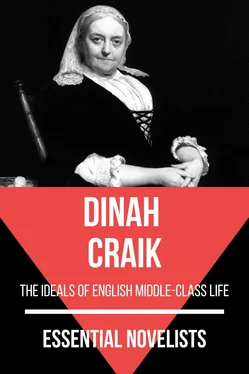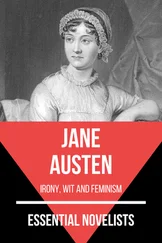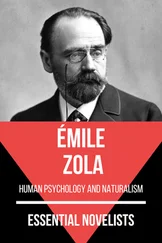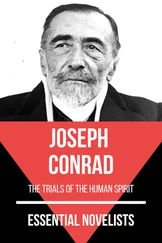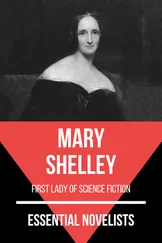John went every day to Norton Bury that week. His mind seemed restless — he was doubly kind and attentive to me; but every night I heard him go out in all the storm to walk upon the common. I longed to follow him, but it was best not.
On the Saturday morning, coming to breakfast, I heard him ask Mrs. Tod how Mr. March was? We knew the invalid had been ailing all the week, nor had we seen him or his daughter once.
Mrs. Tod shook her head ominously. “He is very bad, sir; badder than ever, I do think. She sits up wi’ him best part of every night.”
“I imagined so. I have seen her light burning.”
“Law, Mr. Halifax! you don’t be walking abroad of nights on the Flat? It’s terrible bad for your health,” cried the honest soul, who never disguised the fact that Mr. Halifax was her favourite of all her lodgers, save and except Miss March.
“Thank you for considering my health,” he replied, smiling. “Only tell me, Mrs. Tod, can anything be done — can we do anything for that poor gentleman?”
“Nothing, sir — thank’ee all the same.”
“If he should grow worse let me go for Doctor Brown. I shall be at home all day.”
“I’ll tell Miss March of your kindness, sir,” said Mrs. Tod, as with a troubled countenance she disappeared.
“Were you not going to Norton Bury today, John?”
“I was — but — as it is a matter of no moment, I have changed my mind. You have been left so much alone lately. Nay — I’ll not disguise the truth; I had another reason.”
“May I know it?”
“Of course you may. It is about our fellow-lodgers. Doctor Brown — I met him on the road this morning — told me that her father cannot live more than a few days — perhaps a few hours. And she does not know it.”
He leaned on the mantelpiece. I could see he was very much affected.
So was I.
“Her relatives — surely they ought to be sent for?”
“She has none. Doctor Brown said she once told him so: none nearer than the Brithwoods of the Mythe — and we know what the Brithwoods are.”
A young gentleman and his young wife — proverbially the gayest, proudest, most light-hearted of all our country families.
“Nay, Phineas, I will not have you trouble yourself. And after all, they are mere strangers — mere strangers. Come, sit down to breakfast.”
But he could not eat. He could not talk of ordinary things. Every minute he fell into abstractions. At length he said, suddenly:
“Phineas, I do think it is wicked, downright wicked, for a doctor to be afraid of telling a patient he is going to die — more wicked, perhaps, to keep the friends in ignorance until the last stunning blow falls. She ought to be told: she must be told: she may have many things to say to her poor father. And God help her! for such a stroke she ought to be a little prepared. It might kill her else!”
He rose up and walked about the room. The seal once taken from his reserve, he expressed himself to me freely, as he had used to do — perhaps because at this time his feelings required no disguise. The dreams which might have peopled that beautiful sunset wood necessarily faded in an atmosphere like this — filled with the solemn gloom of impending death.
At last he paused in his hurried walk, quieted, perhaps, by what he might have read in my ever-following eyes.
“I know you are as grieved as I am, Phineas. What can we do? Let us forget that they are strangers, and act as one Christian ought to another. Do YOU not think she ought to be told?”
“Most decidedly. They might get further advice.”
“That would be vain. Dr. Brown says it is a hopeless case, has been so for long; but he would not believe it, nor have his daughter told. He clings to life desperately. How horrible for her!”
“You think most of her.”
“I do,” said he, firmly. “He is reaping what he sowed, poor man! God knows I pity him. But she is as good as an angel of heaven.”
It was evident that, somehow or other, John had learnt a great deal about the father and daughter. However, now was not the time to question him. For at this moment, through the opened doors, we heard faint moans that pierced the whole house, and too surely came from the sick — possibly, the dying — man. Mrs. Tod, who had been seeing Dr. Brown to his horse, now entered our parlour — pale, with swollen eyes.
“Oh, Mr. Halifax!” and the kind soul burst out into crying afresh. John made her sit down, and gave her a glass of wine.
“I’ve been with them since four this morning, and it makes me weakly like,” said she. “That poor Mr. March! — I didn’t like him very much alive, but I do feel so sorry now he’s a-dying.”
Then he WAS dying.
“Does his daughter know?” I asked.
“No — no — I dare not tell her. Nobody dare.”
“Does she not guess it?”
“Not a bit. Poor young body! she’s never seen anybody so. She fancies him no worse than he has been, and has got over it. She WOULDN’T think else. She be a good daughter to him — that she be!”
We all sat silent; and then John said, in a low voice —“Mrs. Tod, she ought to be told — and you would be the best person to tell her.”
But the soft-hearted landlady recoiled from the task. “If Tod were at home now — he that is so full o’ wisdom learnt in ‘the kirk’—”
“I think,” said John, hastily interrupting, “that a woman would be the best. But if you object, and as Doctor Brown will not be here till tomorrow — and as there is no one else to perform such a trying duty — it seems — that is, I believe”— here his rather formal speech failed. He ended it abruptly —“If you like I will tell her myself.”
Mrs. Tod overwhelmed him with thankfulness.
“How shall I meet her, then? If it were done by chance it would be best.”
“I’ll manage it somehow. The house is very quiet: I’ve sent all the children away, except the baby. The baby’ll comfort her, poor dear! afterwards.” And, again drying her honest eyes, Mrs. Tod ran out of the room.
We could do nothing at all that morning. The impending sorrow might have been our own, instead of that of people who three weeks ago were perfect strangers. We sat and talked — less, perhaps, of them individually, than of the dark Angel, whom face to face I at least had never yet known — who even now stood at the door of our little habitation, making its various inmates feel as one family, in the presence of the great leveller of all things — Death.
Hour by hour of that long day the rain fell down — pouring, pouring — shutting us up, as it were, from the world without, and obliterating every thought, save of what was happening under our one roof — that awful change which was taking place in the upper room, in the other half of the house, whence the moans descended, and whence Mrs. Tod came out from time to time, hurrying mournfully to inform “Mr. Halifax” how things went on.
It was nearly dusk before she told us Mr. March was asleep, that his daughter had at last been persuaded to come down-stairs, and was standing drinking “a cup o’ tea” by the kitchen fire.
“You must go now, sir; she’ll not stop five minutes. Please go.”
“I will,” he answered; but he turned frightfully pale. “Phineas — don’t let her see us both. Stay without the door. If there were anybody to tell her this but me!”
“Do you hesitate?”
“No — No.”
And he went out. I did not follow him; but I heard afterwards, both from himself and Mrs. Tod, what transpired.
She was standing so absorbed that she did not notice his entrance. She looked years older and sadder than the young girl who had stood by the stream-side less than a week ago. When she turned and spoke to John it was with a manner also changed. No hesitation, no shyness; trouble had put aside both.
Читать дальше
